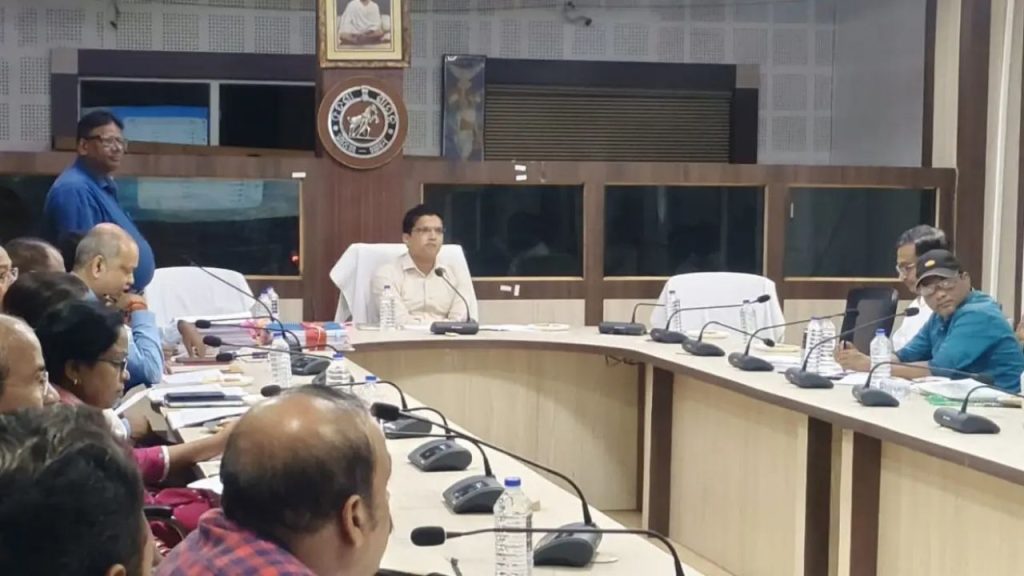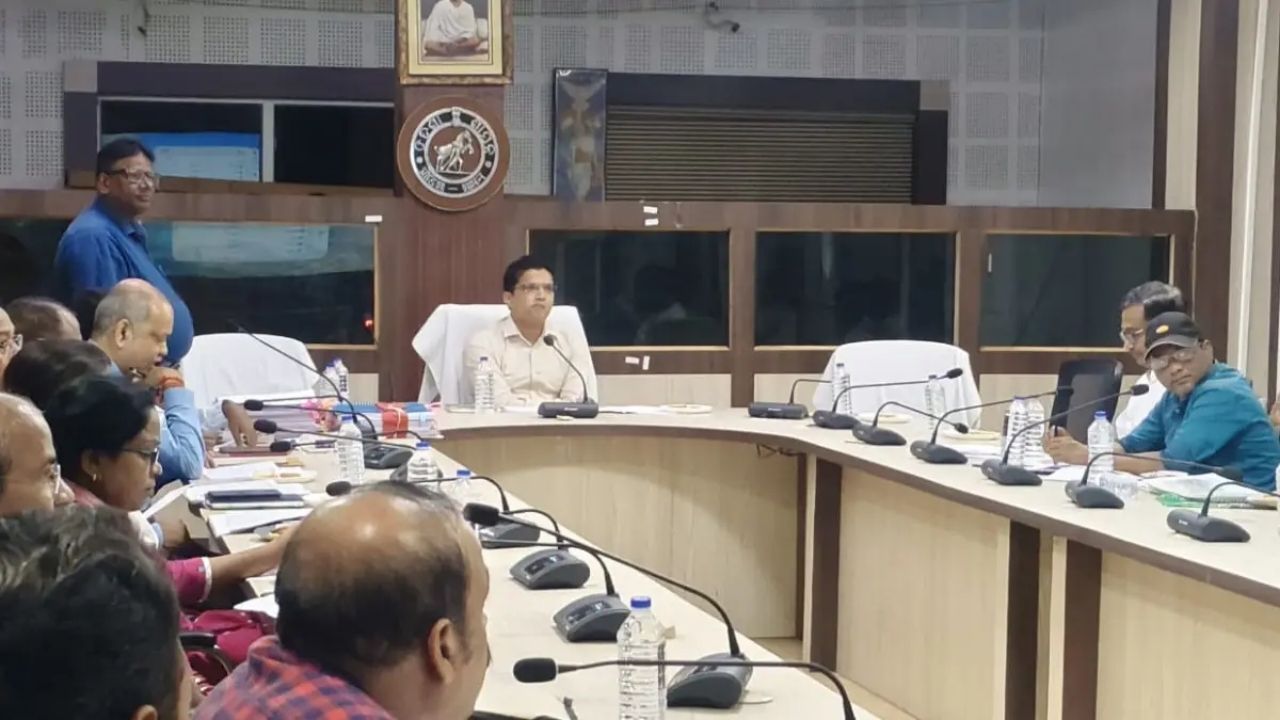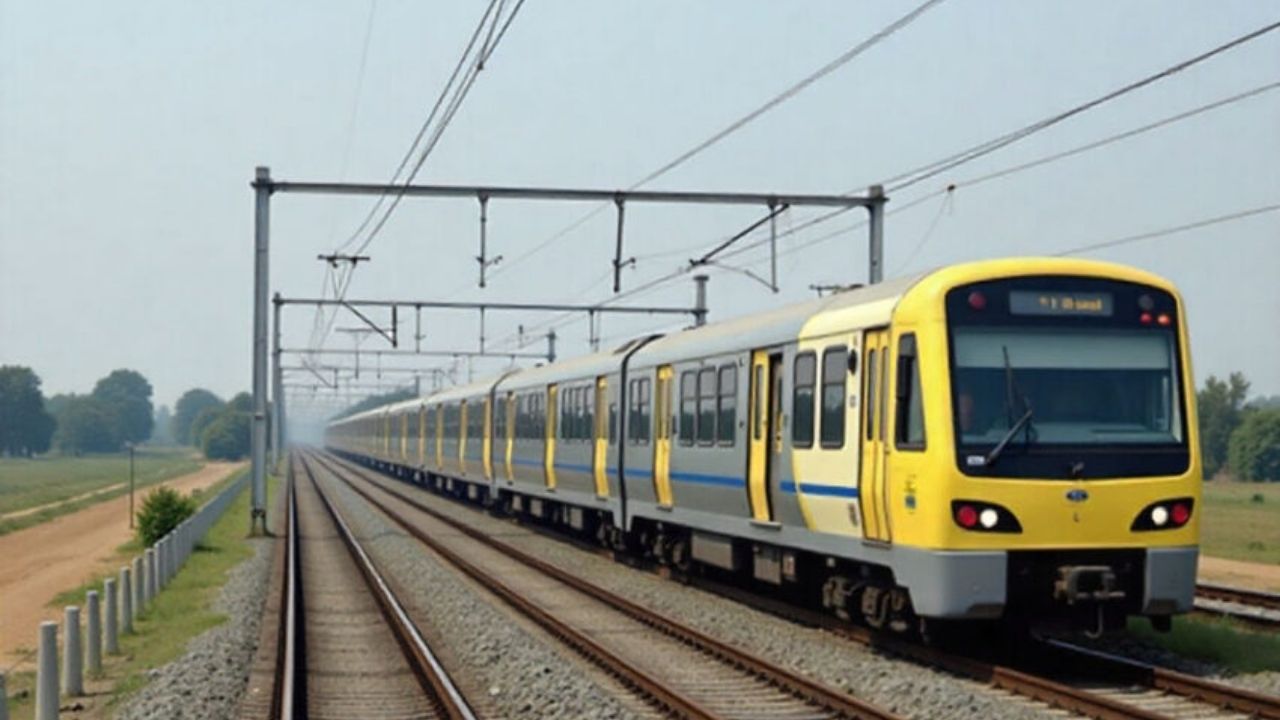In an important move that reflects the Cuttack administration’s commitment to accountability and efficiency, the district has introduced a strict “No Attendance, No Pay” policy for employees working in the Mahanga block. This bold policy was enforced after several officials failed to adhere to attendance protocols, and the absence of a biometric attendance system raised concerns about the effectiveness of governance. In this article, we’ll break down the background of this action, the reasons behind it, and what this policy means for government employees and citizens alike.
Context of the Policy Enforcement
The Mahanga block, located about 39 kilometers east of Cuttack city, is a vital administrative unit in the region. For years, the area has been an integral part of ensuring the effective delivery of public services. However, absenteeism among employees and the failure to implement the biometric attendance system created a ripple effect that ultimately led to the district administration’s decision to withhold pay for these workers.
The issue became critical after an emergency was declared on July 26, 2025. Despite clear directives from the District Collector, Dattatraya Bhausaheb Shinde, a significant number of employees were absent from work during this emergency, which raised alarms about their commitment and professionalism.
The situation worsened when it was revealed that Mahanga block had not yet installed the biometric attendance system—a system that was previously mandated during a public hearing. This was seen as a serious lack of compliance with standard operating procedures, which are designed to ensure transparency, accountability, and efficiency in government operations.
Why is this Such a Big Deal?
For starters, the biometric attendance system is crucial because it helps the administration track the presence and punctuality of its employees. The absence of this system created doubts about the legitimacy of employee attendance records, raising concerns about ghost workers and absenteeism. As a result, the district administration took the unprecedented step of withholding salaries to send a clear message that this behavior would not be tolerated.

This decision by the Cuttack administration is also a step forward in promoting transparency and accountability in the public sector, and it is expected to have a positive long-term impact on how government services are delivered.
Cuttack Administration Enforces ‘No Attendance, No Pay’
| Topic | Details |
|---|---|
| Enforced Policy | “No Attendance, No Pay” policy for Mahanga block employees |
| Reason for Action | High absenteeism, failure to implement biometric attendance system |
| Date of Policy Enactment | July 26, 2025, after an emergency period where many employees were absent |
| Impact on Employees | Salaries withheld until satisfactory explanations are given and the biometric system is installed |
| Official Directive | District Collector Dattatraya Bhausaheb Shinde ordered action following non-compliance with attendance systems |
| Location | Mahanga block, approximately 39 kilometers east of Cuttack city |
| Link to Official Resource | Cuttack Administration Website |
The decision by the Cuttack administration to enforce the No Attendance, No Pay policy in Mahanga is a bold step toward improving public sector efficiency and accountability. By addressing absenteeism and enforcing the use of biometric attendance systems, the administration is ensuring that government employees remain accountable for their time and efforts. This move not only ensures the smooth delivery of public services but also sends a strong message to other government departments about the importance of transparency and professionalism.
In a time when the demand for efficient governance is at an all-time high, policies like this one serve as reminders that public sector employees must meet their obligations and deliver the best possible service to the citizens they are meant to serve.
Why Employee Attendance Matters
Let’s talk about why attendance is such a big deal in the public sector. If you think about it, when government employees don’t show up for work or fail to follow attendance rules, it can cause a ripple effect that impacts everyone. Services like education, healthcare, and infrastructure depend on dedicated employees being present and doing their jobs effectively.
When employees are absent, it can lead to delays in services, missed deadlines, and reduced quality in the services provided. For instance, teachers not showing up in schools, healthcare workers not being available at clinics, or administrative staff missing out on crucial paperwork can all directly affect citizens’ quality of life.

This is why systems like biometric attendance play a vital role in ensuring that employees are held accountable for their time and attendance. By using these systems, the government can ensure that employees are showing up and doing the work they’re paid for, which helps to deliver services more effectively.
How the Cuttack Administration is Addressing the Issue
Following the declaration of an emergency, the Cuttack District Development Officer (DDO) intervened to take action. In response to the non-compliance with the biometric attendance system and absenteeism, the DDO ordered salary withholding for all Mahanga block employees until they provide a valid explanation for their absence.
The Cuttack administration has taken it a step further by making it clear that this is a one-time action designed to reinforce the importance of attendance and adherence to protocols. If employees fail to comply with the established systems, their actions could lead to further disciplinary measures, including suspension or termination.
This is not just about enforcing a rule—it’s about sending a message that accountability matters. If you’re part of a team, and you’re not showing up for work, it impacts the whole team. The Cuttack administration understands this and is taking decisive action to ensure things run smoothly.
The Role of Biometric Attendance in Public Sector Governance
Before diving into more about how this policy impacts government employees, let’s take a moment to understand why biometric attendance is crucial for public sector governance.
In the digital age, automation and technology can help streamline work processes, cut down on administrative work, and ensure fairness. The biometric attendance system is one such tool. This system uses fingerprints, facial recognition, or iris scans to accurately track when an employee enters or exits a government facility.
Not only does this system reduce the chances of fraud, but it also improves efficiency by eliminating the need for paper-based attendance systems that can be manipulated. This shift toward automation allows for real-time tracking of attendance, ensuring that government employees are actually present and on the job.
For example, when a teacher fails to show up at school, students miss out on valuable learning time. In healthcare, when doctors or nurses are absent, patients don’t receive the care they need. Using biometric systems ensures that these sectors, among others, run without interruptions.
A Step Towards Accountability and Efficiency
The Cuttack administration’s new policy is a reflection of the changing approach to governance. Over the last few years, there has been a strong push to bring more transparency and accountability to the public sector, especially when it comes to how employees perform their duties.
By enforcing the “No Attendance, No Pay” policy, the administration is ensuring that employees are held accountable for their time and actions. But it’s also signaling that the administration is serious about delivering quality services to the public and expects everyone to pull their weight.
This policy aligns with broader initiatives in the public sector to enhance performance. Just like in the private sector, government employees are expected to meet certain performance standards, and if those standards are not met, consequences follow.
Odisha CM Majhi to Kick Off Third Installment of Subhadra Yojana on Raksha Bandhan
PNB Manager in Malkangiri Accused of Misappropriating SHG Funds, Investigation Ongoing
FAQs
1. Why are employees’ salaries being withheld in Mahanga block?
The Cuttack administration has decided to withhold salaries for employees in Mahanga due to high absenteeism and failure to implement the mandated biometric attendance system. The move is intended to enforce accountability and ensure that employees follow the attendance protocols.
2. What is the biometric attendance system?
A biometric attendance system is a technology that tracks an employee’s attendance using physical identifiers such as fingerprints, facial recognition, or iris scans. This system helps prevent fraud, improves accuracy, and ensures accountability among employees.
3. How does this impact the citizens of Mahanga?
This action ensures that public services like education, healthcare, and administration in Mahanga will be more efficient and reliable. By holding employees accountable, the government aims to deliver better services to the community.
4. Is this policy temporary or permanent?
The “No Attendance, No Pay” policy is a temporary measure to address the non-compliance of employees and encourage adherence to established attendance protocols. If employees comply with the system, the policy is expected to be relaxed.
5. What steps should employees take to avoid salary withholding?
Employees must ensure they comply with the attendance system by using the biometric system to mark their attendance. Additionally, they should report to work as per the official schedule to avoid unnecessary absenteeism.





